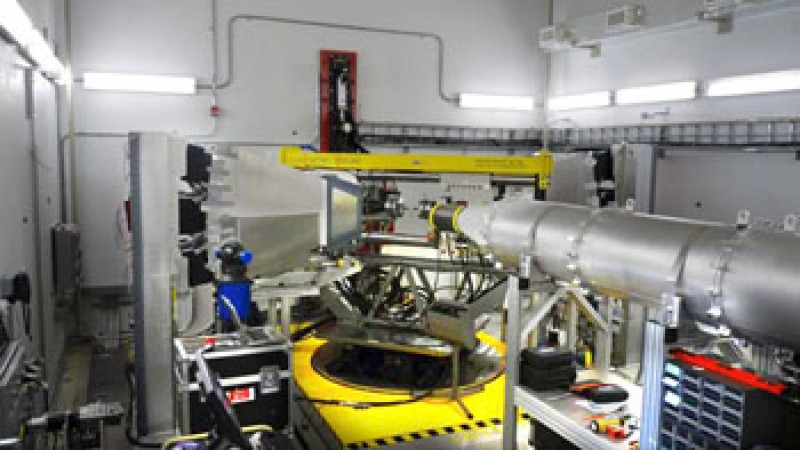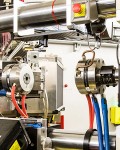Neutron testing of the Japanese-made superconducting cable for the central solenoid (CS) magnetic system for US ITER begins next Tuesday, says Ke An, lead instrument scientist for the VULCAN Engineering Materials Diffractometer at the Spallation Neutron Source. The 3 m long cable, mounted in a specially designed cryostat, can be cooled down to 80 K (-193.5°C). The mapping experiment will be performed at both room temperature and cryogenic conditions, for one week.
US ITER is contributing 100% of the design, R&D, and fabrication of the CS for the giant ITER tokamak experimental fusion reactor. The CS is one of three magnet systems that will contain the burning plasma inside the tokamak. The experimental fusion facility, currently being built in Caderache, in southern France, is expected to achieve first plasma late in 2020.
The conductor is being supplied to the US portion of the project by Japan. Past conductor performance tests have shown significant degradation of the cable under cyclic power loading conditions. Testing last December at VULCAN and further testing next week are using neutrons to take detailed measurements of the strain experienced by the conductor under given temperature and power load conditions.
VULCAN will measure the strain state of the superconducting Nb3Sn phase, inside the metal jacket that encloses the cable. The research will assist engineers at US ITER to correlate the impact of the strain with conductor degradation.
VULCAN is the only neutron scattering instrument capable of combining temperature, magnetic fields, and sample size with rapid data accumulation. It uses the high penetrating power of neutrons generated at the most intense pulsed proton beam in the world to map complex, thick materials, such as ITER’s cable-in-conduit conductor.
Time-of-flight neutron diffraction provides simultaneous mapping of strains and phases in the cable and generates rapid measurements so that a predictive model of strain-induced degradation can be made.
The effort of ongoing testing of the ITER cables is led by Xun-Li Wang from the the ORNL Neutron Sciences Directorate in collaboration with Christopher Rey, Wayne Reiersen, Daniel Hatfield, and Nicolai Martovetsky from US ITER and Tsutomu Hemmi from the Japan Atomic Energy Agency. The VULCAN instrument team included Ke An, A.D. Stoica, Robert Connaster, and Harley Skorpenske.
SNS is funded by the U.S. Department of Energy Office of Basic Energy Sciences.





